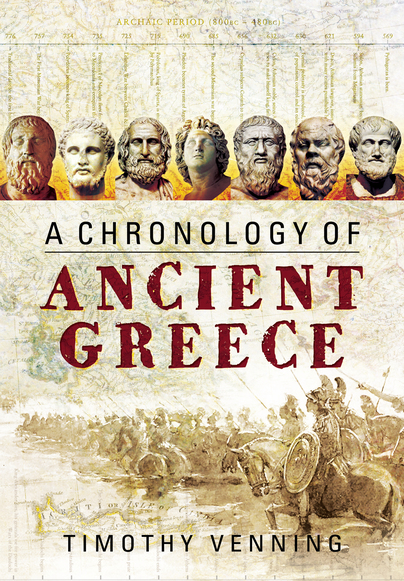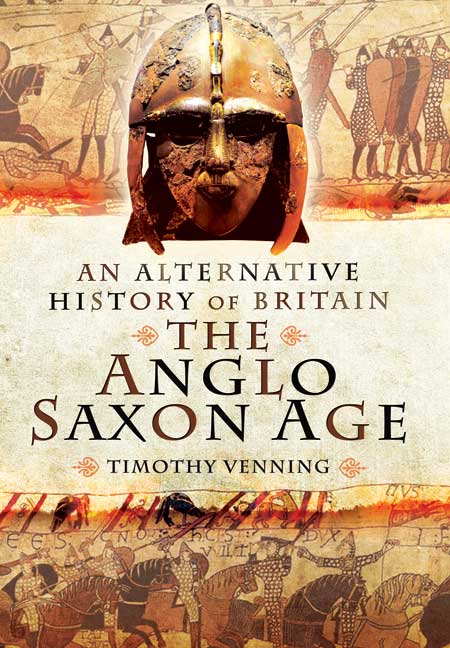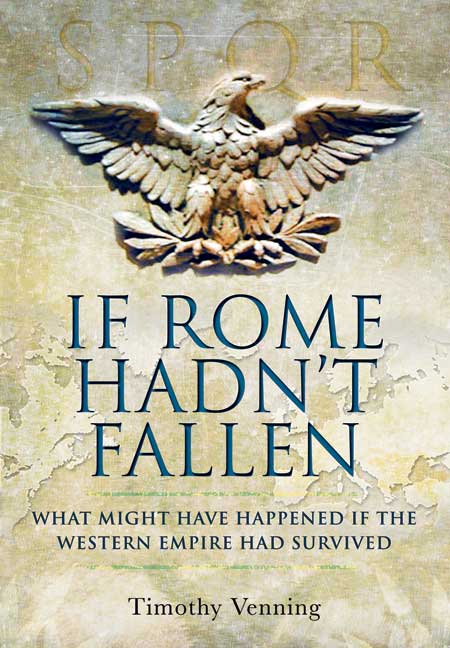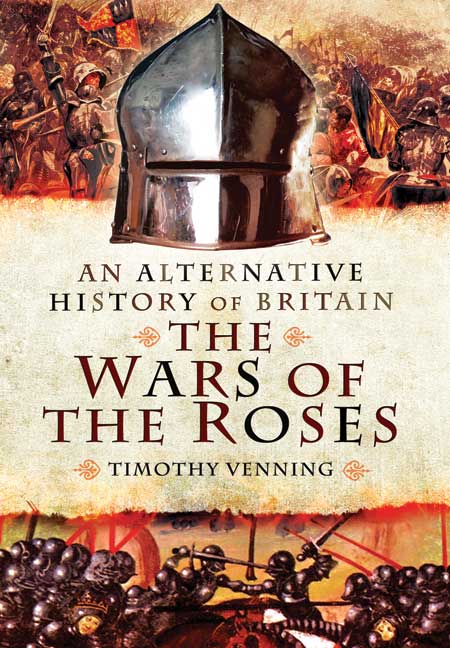Interview with Timothy Venning
This time around I chat with Dr Timothy Venning who has written a lot of books on alternative timelines and what would happen if key events went different ways. I guess these books would be great for wargammers.
Tell us a little about yourself.
I am a First Class Hons History graduate (Classical, Medieval and Early Modern, 1979) and Ph D (1992) of King’s College London, previously educated at Haywards Heath Grammar School Sussex. I have over thirty years experience of academic research work in projects in British, Irish and European history, along with editorial work for various publishing houses I have worked for high profile research projects such as the History of Parliament biographical database, the Robert Boyle Project and the New DNB. For the past fifteen years I have been producing popular and academic history, plus reference, books along with pursuing interests in British literary heritage, photography and the countryside. I live in the New Forest, Hampshire.
What made you focus on the period of history you have written about?
I have always found the medieval period, setting for my first three ‘Royal Mysteries’ books (King Arthur, Anglo-Saxons, and Medieval) fascinating with its vivid and turbulent politics and military events. There was always something dramatic going on in national and often in local history – and Britain changed dramatically from the Roman to Norman periods, not least culturally and linguistically.
Having mixed English, Welsh and Scots blood, I have always been aware of how the different heritages of many peoples fed into the creation of what we now call ‘England’ – which was originally lived in by the ancestors of the Welsh rather than the Germanic ‘Anglo-Saxons’ and spoke Welsh! Also, having grown up in the former Norman royal ‘hunting park of the New Forest and known important castles, pre-Roman hillforts, Roman locations, and later battle-sites from a young age stimulated my interest in history.
Where do you do most of your writing?
At my computer desk in my spare bedroom; but some of my books are based on earlier material I wrote out in longhand decades ago and have had to type up. Until around 2005 I usually composed on a typewriter, but a computer has made it a lot easier to alter early drafts of my scripts.
Share one strange fact you found while researching your work?
I discovered while researching my Anglo-Saxon ‘Royal Mysteries’ book that the only church in England dedicated to a king, ‘St Edward King and Martyr’ (assassinated in 978), was built at Corfe Castle in Dorset close to the site of his killing. But despite being recognised – for political reasons – as a saint he had no holy characteristics or notably religious conduct. Though he founded churches and monasteries he was a teenager dominated by his late father’s ministers and this was done at their prompting; he himself was noted for his violent temper and lack of self-control.
In this era ‘royal saints’ usually had to be holy pacifists and known for good conduct; he was rather the reverse and many nobles feared having him as king and defied him. But the followers of a rival claimant to the throne, his younger half-brother Ethelred ‘the Unready , murdered him in an ambush at his stepmother’s house, allegedly to please her . He was then declared a saint by his supporters in the Church to embarrass his enemies, and revered as a martyr .
What is your favourite resource for carrying out research?
Dorchester County Library – a wide range of old and modern books and a collection of major reference books that saves me having to go up to London to consult copies. Also, with the countryside so close I can go for a long walk after researching for a change of scene – I am a keen walker and have compiled a large collection of photographs of relavant sites for my books .
What are you working on next?
I am bringing my collection of investigations of ‘British Royal Mysteries’ more up to date with books on the Tudor and Stuart/ Georgian eras for Pen and Sword, now virtually complete. Also , my previous series of ‘What If’ British history books for them (on how things could have turned out a lot differently in history is being reissued and I am writing further volumes. This time I am having a go at Roman history, on which I was writing speculative essays when I was a student as a change from ‘straight’ history. This subject of playing around with what really happened – which often relies on split-second decisions, mistakes, and freak coincidences -has always fascinated me.
My work on another major interest, tracking down the the real locations used in my favourite children’s fiction of the 1940s-70s, should be out in one or two books in the next year or two, and I have a work on Enid Blyton’s locations ready along with its accompanying photograph dossier – the real world of ‘Five Go Mad In Dorset’! I used to know Blyton’s ow holiday location of Swanage and Corfe Castle, coincidentally ‘Anglo-Saxon Royal Mysteries’ sites too, as a child, not long after she had finished writing about them. My work on thriller writer Malcolm Saville’s Shropshire and Sussex and Arthur Ransome’s Lake District and Norfolk will follow. But finding a publisher has taken longer than expected.
Where can people find about more about your work? Are you active on social media, publish your own website for example?
My books are advertised on various publishers’ websites – Pen and Sword, Amberley, Palgrave Macmillan, Bloomsbury, and Sealion Counter-Factual Publishing. I am also active on the latter’s internet forums on counter-factual history, writing speculative contributions on various topics under the by-line ‘Heraclius’ (referencing my favourite interest of Byzantine history). I also contribute regularly to the Enid Blyton Society internet forums and magazine, writing as ‘Timv’ .
Books
A Chronology of Ancient Greece
This book offers a coherent narrative of the politico-military history of ancient Greece. It commences with the necessarily approximate course of events in Bronze and early Iron Age, as estimated by the most reliable scholarship plus the legendary accounts of this period. From the Persian Wars onwards, a year-by-year chronology is constructed from the ancient historical sources. Where possible a day-by-day narrative is given.
The geographical scope expands as the horizons of the Greek world and colonization expanded with reference to developments in politico-military events in the Middle Eastern (and later Italian) states that came into contact with Greek culture. From the expansion of the Greek world across the region under Alexander, the development of all the relevant Greek/Macedonian states is covered. The text is divided into events per geographical area for each date, cross-referencing where needed. Detailed accounts are provided for battles and political crises where the sources allow this, and where not much is known for certain the different opinions of historians are referenced en route. The result is a coherent, accessible and accurate reference to what happened and when.
An Alternative History of Britain: The Anglo-Saxon Age
Taking a similar approach to his successful If Rome Hadn’t Fallen, Timothy Venning explores the various decision points in a fascinating period of British history and the alternative paths that it might have taken.
Dr Timothy Venning starts within an outline of the process by which much of Britain came to be settled by Germanic tribes after the end of Roman rule, so far as it can be determined from the sparse and fragmentary sources. He then moves on to discuss a series of scenarios which might have altered the course of subsequent history dramatically. For example, was a reconquest by the native British ever a possibility (under ‘Arthur’ or someone else)? Which of the Anglo-Saxon kingdoms might have united England sooner and would this have kept the Danes out? And, of course, what if Harold Godwinson had won at Hastings?
While necessarily speculative, all the scenarios are discussed within the framework of a deep understanding of the major driving forces, tensions and trends that shaped British history and help to shed light upon them. In so doing they help the reader to understand why things panned out as they did, as well as what might have been.
If Rome Hadn’t Fallen
This is a fascinating exploration of how the history of Europe, and indeed the world, might have been different if the Western Roman Empire had survived the crises that pulled it apart in the 4th and 5th centuries.
Dr Timothy Venning starts by showing how that survival and recovery might plausibly have happened if several relatively minor things had been different. He then moves on to discuss a series of scenarios which might have altered the course of subsequent history dramatically. Would the survival of a strong Western Empire have assisted the Eastern (Byzantine) Empire in halting the expansion of Islam in the Middle East and North Africa? How would the Western Roman Empire have handled the Viking threat? Could they even have exploited the Viking discovery of America and established successful colonies there?
While necessarily speculative, all the scenarios are discussed within the framework of a deep understanding of the major driving forces, tensions and trends that shaped European history and help to shed light upon them. In so doing they help the reader to understand why things panned out as they did, as well as what might have been.
An Alternative History of Britain: The War of the Roses
Timothy Venning’s exploration of the alternative paths that British history might easily have taken moves on to the Wars of the Roses. What if Richard of York had not given battle in vain? How would a victory for Warwick the Kingmaker at the Battle of Barnet have changed the course of the struggle for power? What if the Princes had escaped from the tower or the Stanleys had not betrayed their king at Bosworth? These are just a few of the fascinating questions posed by this book.
As always, while necessarily speculative, Dr Venning discusses all the scenarios within the benefit of a deep understanding of the major driving forces, tensions and trends that shaped British history. In so doing, he helps the reader to understand why things panned out as they did, as well as what might have been in this tumultuous period.
< BACK


